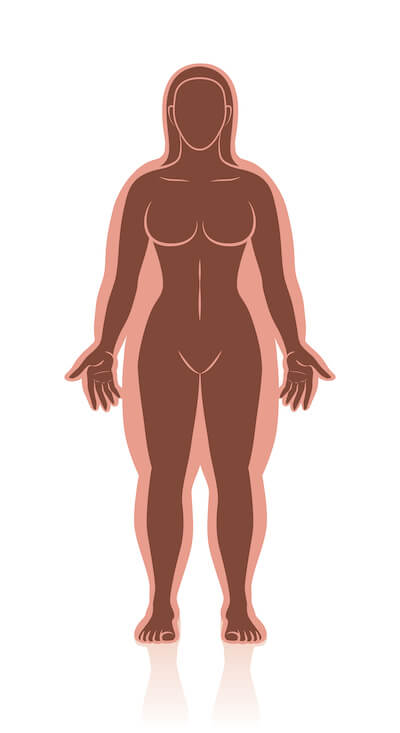Hormones and Weight Gain
The fact that hormones influence weight gain has been known for a long time.
However, hormones do not get nearly as much attention as they deserve.
Diets and exercise plans have become the only Holy Bible when it comes to losing weight. But, the popular excuse that hormones are to blame for the weight gain of obese people is also completely wrong.
Why Are Hormones Important when it comes to Weight Gain?
Hormones are essential for the proper functioning of your body. They regulate your metabolism and energy levels.
They can increase or decrease the desire for food
Hormones also play a vital role in the growth and development of bones, muscles, and other tissues. Very often, imbalanced hormone levels are the reason behind failed diets and exercise plans.
For all these reasons and more, hormonal health should always be an integral part of every weight-loss program.
The most important hormones and their role in weight regulation:
Ghrelin
Ghrelin, AKA the “hunger hormone”, is produced in the gastrointestinal tract. Its most important role is signaling the brain when the stomach is empty.
This hunger hormone is the number one cause of our increased appetite and overeating.
Luckily, there are ways to keep ghrelin levels under control. These include:
- Sleeping at least 8 hours per night
- Keeping the blood sugar levels stable with a balanced diet
- Maintaining an active lifestyle
Leptin
Leptin is a hunger inhibitor that regulates appetite, our food intake, and body weight.
This hormone is produced by the adipose cells located in the adipose tissue (stored fat).
Therefore, obesity causes a spike in leptin levels, increasing our appetite
This is the main reason why obese people report having difficulties knowing when to stop eating. Excess fat and its high levels of leptins are signaling the brain that it still needs more food.
There are blood tests available that can help to diagnose leptin resistance. Once diagnosed, this condition can be treated by dieting and exercise.
As the fat deposits decline, the production of leptin decreases as well, allowing this hormone to take up its role in regulating appetite and weight.
Cortisol
Cortisol is a hormone produced by the adrenal gland and it is the body’s main response to stress. The instant rise of cortisol levels feels like a sudden and short-term energy boost. An example of this is our reactions during stressful situations.
A life full of stressful events affects normal processes in the body and causes various health issues. like the inability to sleep and to keep a healthy weight.
The best way to control cortisol levels is to learn how to manage stress. Professional help is often necessary but certain means of relaxation such as massage, yoga, and meditation can work well.
Insulin
Whenever we eat, the pancreas releases insulin to make sure the glucose-to-energy transformation happens. Most of the foods we eat are rich in glucose (carbs). Insulin allows this glucose to be turned into energy for the muscles, brain, and other tissues to use.
This conversion of glucose into energy, helps decrease sugar levels in the blood. A very positive thing. However, there is a catch.
- First, a long-lasting high-calorie diet rich in carbs causes insulin levels to stay high over a longer period. Often, this results in our bodies resisting insulin.
- Second, this insulin resistance inhibits the glucose-to-energy transformation. Instead of glucose being spent by the muscles, the excess sugar gets stored as fat. Insulin resistance is therefore characterized by weight gain, decreased physical activity, and food cravings. The combination of all these factors is the main cause of type II diabetes.
There are blood tests designed to determine insulin levels and help diagnose insulin resistance.
Physical activity, balanced diet, medications, and weight loss can increase insulin sensitivity and help your body to manage blood sugar levels more efficiently.
Hormones and Weight Gain, The Bottom Line
Hormone levels affect our health in numerous ways. When it comes to maintaining a healthy weight, their importance cannot be overlooked. Hormones have a crucial role in weight gain and weight loss, they can either make them easier or far more complicated.
If you are, despite your best efforts, struggling to lose weight you should seek professional help and check your hormonal health. It might prove to be the missing part of the puzzle.




